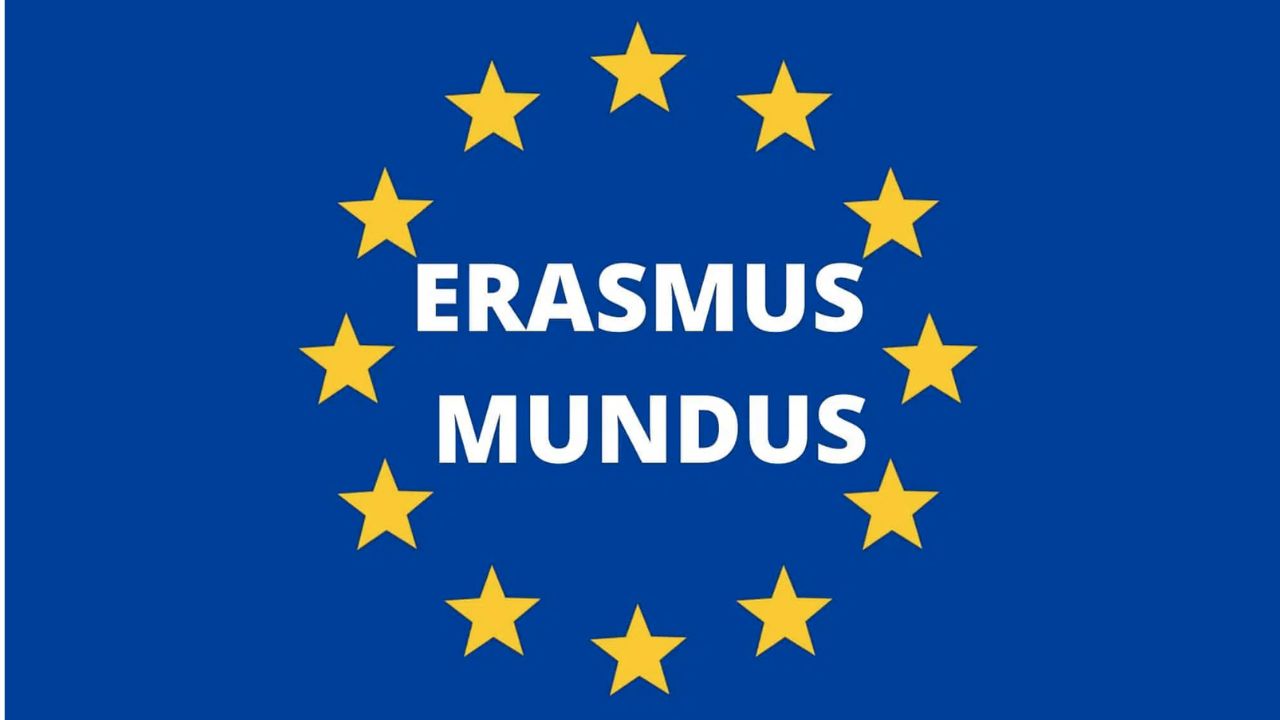Study Abroad Scholarships: Studying abroad is a dream for many students. It opens up opportunities to gain global perspectives, experience diverse cultures, and access top-tier education systems.
However, the financial burden can be a major hurdle for many aspiring international students. This is where scholarships come into play.
In this guide, we will explore the best study abroad scholarships for 2025, discuss how to apply for them, and provide tips to increase your chances of success.
Why Study Abroad?
Studying abroad offers numerous benefits, including:
- Quality Education: Many countries have world-renowned universities and colleges offering specialised programs.
- Global Networking: Meet people from diverse backgrounds, building connections that can benefit your career.
- Cultural Experience: Immerse yourself in a new culture, language, and way of life.
- Employability: Employers value international experience, giving you an edge in the job market.
However, tuition fees, living expenses, and travel costs can add up. This is why scholarships are essential for students seeking to make their study-abroad dreams a reality.
Types of Study Abroad Scholarships
Scholarships for studying abroad come in various forms. Here are the main types:
- Merit-Based Scholarships
These scholarships are awarded to students with outstanding academic achievements, leadership qualities, or exceptional talents in sports, arts, or other fields. - Need-Based Scholarships
Designed for students from low-income families, these scholarships help cover tuition fees, living expenses, and other costs. - Government-Funded Scholarships
Many governments offer scholarships to attract international students. Examples include the Fulbright Program (USA), Chevening Scholarships (UK), and DAAD Scholarships (Germany). - University-Specific Scholarships
Many universities offer scholarships to international students based on academic excellence or financial need. - Program-Specific Scholarships
Scholarships are tailored for specific fields of study, such as engineering, medicine, or the arts. - Destination-Specific Scholarships
Some countries provide scholarships to encourage international students to study in their institutions. Examples include the Australian Awards and Erasmus+ Program (Europe).
Top Study Abroad Scholarships for 2025
Here’s a curated list of some of the most prestigious scholarships for international students in 2025:
1. Fulbright Foreign Student Program (USA)
- Eligibility: Open to students from over 160 countries.
- Benefits: Covers tuition, airfare, living stipend, and health insurance.
- Deadline: Varies by country (usually between February and December 2024).
2. Chevening Scholarships (UK)
- Eligibility: Open to students from Chevening-eligible countries.
- Benefits: Full tuition fees, travel costs, and a monthly stipend.
- Deadline: November 7, 2024.
3. DAAD Scholarships (Germany)
- Eligibility: For postgraduate courses in Germany.
- Benefits: Monthly stipend, travel allowance, health insurance, and tuition fee waivers.
- Deadline: Varies by program.
4. Australia Awards Scholarships
- Eligibility: Open to students from developing countries in Asia, Africa, and the Pacific.
- Benefits: Covers full tuition fees, travel costs, living expenses, and health insurance.
- Deadline: April 30, 2025.
5. Erasmus Mundus Joint Master Degrees (Europe)
- Eligibility: Open to students worldwide.
- Benefits: Covers tuition fees, travel costs, and a monthly stipend.
- Deadline: Varies by program.
6. Vanier Canada Graduate Scholarships (Canada)
- Eligibility: For doctoral students in Canada.
- Benefits: CAD 50,000 annually for three years.
- Deadline: November 2024.
7. Swiss Government Excellence Scholarships (Switzerland)
- Eligibility: For postgraduate and research students.
- Benefits: Covers tuition fees, a monthly stipend, health insurance, and airfare.
- Deadline: December 2024.
How to Apply for Study Abroad Scholarships
Applying for scholarships can be competitive, but with the right approach, you can stand out. Here’s how:
1. Research Early
Start researching scholarships a year in advance. Understand the eligibility criteria, deadlines, and application process.
2. Prepare Your Documents
Commonly required documents include:
- Academic transcripts
- Letters of recommendation
- Statement of purpose or personal essay
- Proof of financial need (for need-based scholarships)
3. Tailor Your Application
Customise your application for each scholarship. Highlight your achievements, goals, and how the scholarship will help you.
4. Meet Deadlines
Ensure you submit your application well before the deadline. Late submissions are often disqualified.
5. Seek Guidance
Consult your school counsellors, mentors, or financial aid offices for assistance.
Tips to Boost Your Chances of Winning Scholarships
- Excel Academically: Maintain a strong GPA and participate in extracurricular activities.
- Craft a Compelling Essay: Your essay should showcase your passion, goals, and why you deserve the scholarship.
- Secure Strong Recommendations: Choose recommenders who know you well and can vouch for your abilities.
- Apply to Multiple Scholarships: Diversify your options to increase your chances.
- Stay Organised: Keep track of deadlines and required documents.
Frequently Asked Questions (FAQs)
1. What are study abroad scholarships, and how do they work?
Study abroad scholarships are financial awards designed to help students cover tuition fees, living expenses, travel costs, and other expenses associated with studying in a foreign country.
They are usually merit-based, need-based, or tied to specific programs or institutions. Eligible students must apply and meet the scholarship criteria to receive funding.
2. Are there scholarships available for undergraduate and postgraduate students?
Yes, scholarships are available for both undergraduate and postgraduate students. Many universities, governments, and organisations offer funding for bachelor’s, master’s, and doctoral programs.
Make sure to check the eligibility requirements for each scholarship to see which levels of study they support.
3. When should I start applying for scholarships for 2025?
It’s best to start researching and applying for scholarships at least 12 to 18 months before your intended start date. For study abroad scholarships in 2025, you should begin your search in 2023 or early 2024 and pay attention to specific deadlines, which often fall in late 2024 or early 2025.
4. Do study abroad scholarships cover all expenses?
Some scholarships, such as fully funded scholarships (e.g., Chevening or Fulbright), cover all major expenses, including tuition fees, airfare, living costs, and health insurance. Others may only provide partial funding, such as tuition waivers or stipends. Review the scholarship details to understand what is covered.
5. Can I apply for multiple scholarships at the same time?
Yes, you can and should apply for multiple scholarships to increase your chances of securing funding. However, ensure that you meet the eligibility requirements for each scholarship and that there are no restrictions on receiving multiple awards simultaneously.
6. What are the main eligibility criteria for study abroad scholarships?
Eligibility criteria vary depending on the scholarship but commonly include:
- Academic excellence (GPA or grades)
- Financial need
- Leadership, extracurricular involvement, or community service
- Proof of language proficiency (e.g., TOEFL, IELTS)
- Residency or citizenship in specific countries.
7. How can I improve my chances of winning a study abroad scholarship?
To improve your chances:
- Maintain a strong academic record.
- Write a compelling essay or statement of purpose.
- Obtain strong letters of recommendation.
- Highlight leadership experiences and extracurricular involvement.
- Meet all application requirements and submit early.
8. Are there scholarships specifically for certain countries or regions?
Yes, many scholarships are region-specific or country-specific. For example:
- Erasmus Mundus supports studying in Europe.
- Australia Awards Scholarships are for students from the Asia-Pacific, Africa, and other developing regions.
- DAAD scholarships are for students studying in Germany.
Research scholarships targeted at the destination you plan to study in.
9. Do I need to repay scholarships?
No, scholarships are generally not loans and do not need to be repaid. They are considered financial gifts or awards.
However, some scholarships may have conditions, such as returning to your home country after completing your studies, which you must adhere to.
10. Where can I find study abroad scholarships for 2025?
You can find scholarships through:
- University websites (check their financial aid or international student pages).
- Government scholarship programs (e.g., Fulbright, Chevening, DAAD).
- Scholarship databases and platforms like Scholarships.com, Fastweb, or IEFA.org.
- Non-profit organisations and private foundations.
- Study abroad agencies or consultants.
Conclusion
Studying abroad is an enriching experience that can shape your future. While the financial aspect may seem daunting, scholarships can make it achievable.
By exploring the opportunities listed above, preparing thoroughly, and applying strategically, you can turn your dream of studying abroad in 2025 into reality.
Invest time in research, put effort into your applications, and don’t hesitate to seek guidance. With the right approach, you’ll be on your way to an exciting academic journey abroad.



